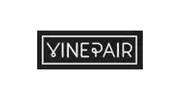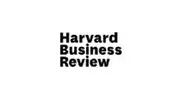Media Coverage

MarketLit
Rutgers Business School (RBS) FinTech Professor & Leading Blockchain Expert Dr. Merav Ozair presents at MarketLit, Australia's first social media investment conference and answers:
1. What are NFTs and why is there so much excitement around them now?
2. What are the biggest applications for NFTs and what are some of the best ways for investors to get access to the NFT space?
3. How will the emergence of NFTs work with existing social media platforms?
4. Who do you think should be responsible for regulating social media, NFTs and emerging technology?
1. What are NFTs and why is there so much excitement around them now?
2. What are the biggest applications for NFTs and what are some of the best ways for investors to get access to the NFT space?
3. How will the emergence of NFTs work with existing social media platforms?
4. Who do you think should be responsible for regulating social media, NFTs and emerging technology?

CoinDesk
When bitcoin was introduced by the Satoshi white paper in 2008, it presented a novel and liberating concept – a peer-to-peer, decentralized payment system that can be used by anyone, anywhere and for everything. It did not require intermediaries or an exchange rate to function, and created a single globally used currency for any type of transaction.
Then greed got in the way.
The use case that it was supposed to deliver has somewhat faded. Instead of focusing on its initial intent – a payment method – the focus shifted to bitcoin as an investment vehicle, a store value, a digital gold.
Then greed got in the way.
The use case that it was supposed to deliver has somewhat faded. Instead of focusing on its initial intent – a payment method – the focus shifted to bitcoin as an investment vehicle, a store value, a digital gold.

NJBIZ
Lyons is an associate professor at Rutgers Business School, where he focuses on supply chain management, and heads their Public Private Community Partnership Program. His research has focused on how to integrate the different aspects of the supply chain – including raw material extraction, logistics, manufacturing and design – into economic development, financial forecasting and environmental and social justice efforts at the local, nationwide and international levels. With shortages of raw materials and other products hindering economies everywhere, a major push has been to source locally and domestically. Lyons has been involved with the “Buy Newark” initiative, under which businesses in the state’s largest city purchase directly from Newark businesses. Newark Mayor Ras Baraka’s office said there’s been considerable buy-in from partners such as Rutgers-Newark, United Airlines, Verizon, Panasonic, and Horizon Blue Cross Blue Shield of New Jersey. “We can make the local competitive,” Lyons said in a February interview, as long as local officials do their work to promote the goods and products made in the communities they lead.

The Wall Street Journal
“The beauty of it is that it allows you to facilitate transactions that are not possible in the physical world or that would be really complicated and costly,” Merav Ozair, a blockchain expert and a fintech professor at Rutgers Business School, told me.
She said NFTs can also be used to authenticate and transfer ownership of physical objects, like a rare bottle of scotch, in the real world.
She said NFTs can also be used to authenticate and transfer ownership of physical objects, like a rare bottle of scotch, in the real world.

Business News Daily
"I believe small business owners are always optimistic. It's a challenging political time, but entrepreneurs are focused on generating revenue, being profitable, finding new customers and finding new markets," said Lyneir Richardson, executive director of Rutgers Business School's Center for Urban Entrepreneurship and Economic Development.

VinePair
Bullish observers like McCormick see huge opportunities for corporations in the Web3 space. Forging new connections with old and new fans is a big one. “First of all, it reminds you about the brand,” says Dr. Merav Ozair, a leading blockchain expert and fintech professor at Rutgers Business School. “Budweiser may not be the most popular [beer brand], there are the other brands that are trying to compete, so they’re kind of rekindling: ‘Hey, we’re still around, we’ve been around, and we’re still good.”
“That’s one purpose” for corporate NFT projects like Budweiser’s, she continues. “The other is monetizing whatever they can.”
“That’s one purpose” for corporate NFT projects like Budweiser’s, she continues. “The other is monetizing whatever they can.”

The Daily Targum
Parul Jain, associate professor of professional practice in the Department of Finance and Economics, said the SPR is primarily a crude petroleum reserve meant to act as an energy stockpile in case of any severe supply disruptions. The reserve was created in 1975 in response to the 1973 energy crisis resulting from the Organization of the Petroleum Exporting Countries (OPEC) oil embargo.
She said the Biden Administration has been concerned about rising oil and gas prices for some time and has been constructing a plan to release oil reserves in coordination with other countries. Korea, Japan, India, China and the U.K. will provide 30 million barrels of oil in conjunction with the U.S. release, making a total of approximately 70 to 80 million barrels.
“So, the overall release amounted to about 70 (to) 80 million barrels, short of the 100 (plus) million barrels that (were) being priced in,” Jain said. “Oil prices actually rose on the heels of the announcement.”
She said the Biden Administration has been concerned about rising oil and gas prices for some time and has been constructing a plan to release oil reserves in coordination with other countries. Korea, Japan, India, China and the U.K. will provide 30 million barrels of oil in conjunction with the U.S. release, making a total of approximately 70 to 80 million barrels.
“So, the overall release amounted to about 70 (to) 80 million barrels, short of the 100 (plus) million barrels that (were) being priced in,” Jain said. “Oil prices actually rose on the heels of the announcement.”

USA Today
Ashwani Monga, a marketing professor and consumer psychologist at the Rutgers Business School, has seen tons of multicultural toy brands emerge, too, or even just finally get noticed. That’s due to changing consumer habits and the attention that marketers are paying to that, he said.
Due to a changing acceptance of diverse races and cultures in society, people are identifying more with those aspects of their identities and seeking out toys that reflect those newfound identities, he continued. It’s a positive that reaches far beyond recess.
“Expectations drive who we become,” Monga said. “If I’m a child of color and I see a toy of color who is a doctor or a scientist, then I know this is somebody like me and I can do this. Kids get cues, and they live up to those cues.”
Due to a changing acceptance of diverse races and cultures in society, people are identifying more with those aspects of their identities and seeking out toys that reflect those newfound identities, he continued. It’s a positive that reaches far beyond recess.
“Expectations drive who we become,” Monga said. “If I’m a child of color and I see a toy of color who is a doctor or a scientist, then I know this is somebody like me and I can do this. Kids get cues, and they live up to those cues.”

Patch
The issues started first with as shortage of raw materials, followed by inflated energy costs and then compounded by a shortage of manufacturing workers, explained Rudi Leuschner, director of the Master of Science in Supply Chain Management program at Rutgers Business School.
"Manufacturing transportation delays and warehouse shortages, as well as an overall labor shortage. All of this is the case while we have unprecedented demand for goods all across the board," he said.
"The quickest we are going back to normal is when seasonal demand declines and supply chains have a chance to get back to some equilibrium. There are short-term remedies, such as addressing choke-points at the ports and relaxing rules around hours of service."
"Manufacturing transportation delays and warehouse shortages, as well as an overall labor shortage. All of this is the case while we have unprecedented demand for goods all across the board," he said.
"The quickest we are going back to normal is when seasonal demand declines and supply chains have a chance to get back to some equilibrium. There are short-term remedies, such as addressing choke-points at the ports and relaxing rules around hours of service."

U.S. News & World Report
If you invest in Bitcoin, Ethereum, Dogecoin or any number of other cryptocurrencies, you might want to spend some of your holdings. Crypto debit cards are a tool that can make it easier for consumers to use cryptocurrency with merchants who don’t accept their digital coins outright.
But be sure to read all the fine print before you open a card. Companies may advertise rewards programs or say they have low fees, "but they don't advertise all the other things that you are being penalized for or paying fees for," says Merav Ozair, a blockchain expert and fintech professor at Rutgers Business School.
But be sure to read all the fine print before you open a card. Companies may advertise rewards programs or say they have low fees, "but they don't advertise all the other things that you are being penalized for or paying fees for," says Merav Ozair, a blockchain expert and fintech professor at Rutgers Business School.

ROI-NJ
For all the classes that are taught by some of the top professionals in the industry, and all the degrees that have been conferred, Morris Davis likes to offer a different metric when measuring the impact and success of the Center for Real Estate at Rutgers University.
Before the founding of the center in 2015, Rutgers had not awarded a single scholarship dollar to those studying real estate in any fashion. Since then, the center has distributed nearly $1.3 million to 220 students — with nearly all of the funds coming from private donors.
Davis, the Paul V. Profeta Chair of Real Estate and the academic director of the Center for Real Estate at the Rutgers Business School, often talks of making the center the best real estate school in the country. He said that can only happen if the school makes its students the top priority.
“We really want to invest everything that we can in the students, so that they have the best possible career trajectory,” he said. “And a lot of that has to do with finances. We want to give them every opportunity possible. What we don’t want them to do is to make a terrible career decision because they’re worried about debt.”
Before the founding of the center in 2015, Rutgers had not awarded a single scholarship dollar to those studying real estate in any fashion. Since then, the center has distributed nearly $1.3 million to 220 students — with nearly all of the funds coming from private donors.
Davis, the Paul V. Profeta Chair of Real Estate and the academic director of the Center for Real Estate at the Rutgers Business School, often talks of making the center the best real estate school in the country. He said that can only happen if the school makes its students the top priority.
“We really want to invest everything that we can in the students, so that they have the best possible career trajectory,” he said. “And a lot of that has to do with finances. We want to give them every opportunity possible. What we don’t want them to do is to make a terrible career decision because they’re worried about debt.”

Yahoo Finance
Rutgers Business School professor Jay Soled joins Yahoo Finance to explain how Americans can reap tax benefits from charitable giving.
Watch Video
Watch Video

News Wise
A Rutgers FinTech expert explains how decentralized finance may change how we use financial services and what it means for the future
While the hysteria over NFT’s (non-fungible tokens) continues, a new blockchain-based form of finance called decentralized finance or DeFi has caught the attention of everyday consumers and Wall Street veterans alike.
Merav Ozair, a FinTech professor at Rutgers Business School and leading expert on blockchain and cryptocurrency, says DeFi has lowered access barriers to financial services where everyone can access economic activities – like high-yield savings, trading, lending or insurance – without a bank account or a credit check.
Ozair demystifies decentralized finance – aptly called the “Wild West of Crypto” – and what it means for the future of money.
While the hysteria over NFT’s (non-fungible tokens) continues, a new blockchain-based form of finance called decentralized finance or DeFi has caught the attention of everyday consumers and Wall Street veterans alike.
Merav Ozair, a FinTech professor at Rutgers Business School and leading expert on blockchain and cryptocurrency, says DeFi has lowered access barriers to financial services where everyone can access economic activities – like high-yield savings, trading, lending or insurance – without a bank account or a credit check.
Ozair demystifies decentralized finance – aptly called the “Wild West of Crypto” – and what it means for the future of money.

Women In Business
To kick off this season of Wednesdays with WIB, our host Sunanda Saravanakumar speaks with Professor Lisa Kaplowitz, the executive director of the Center of Women in Business at Rutgers. In this episode, we get to learn more about Professor Kaplowitz’s many roles, from being a mom, professor, and consulting firm owner, as well as hear advice she has for students!

Yahoo News
Ashwani Monga, a marketing professor and consumer psychologist at the Rutgers Business School, has seen tons of multicultural toy brands emerge, too, or even just finally get noticed. That’s due to changing consumer habits and the attention that marketers are paying to that, he said.
Due to a changing acceptance of diverse races and cultures in society, people are identifying more with those aspects of their identities and seeking out toys that reflect those newfound identities, he continued. It’s a positive that reaches far beyond recess.
“Expectations drive who we become,” Monga said. “If I’m a child of color and I see a toy of color who is a doctor or a scientist, then I know this is somebody like me and I can do this. Kids get cues, and they live up to those cues.”
Due to a changing acceptance of diverse races and cultures in society, people are identifying more with those aspects of their identities and seeking out toys that reflect those newfound identities, he continued. It’s a positive that reaches far beyond recess.
“Expectations drive who we become,” Monga said. “If I’m a child of color and I see a toy of color who is a doctor or a scientist, then I know this is somebody like me and I can do this. Kids get cues, and they live up to those cues.”

CoinDesk
“As much as we say this is decentralized, there are humans behind it,” says Merav Ozair, a blockchain-focused finance professor at Rutgers. “Someone has to write the software. It shouldn’t be at the hand of one developer, or a small group. We should have a long-term, bigger audit.”
To that end, the nonprofit International Association of Trusted Blockchain Applications (INATBA), where Ozair is an adviser, is developing a proposal for a European Union committee to monitor Bitcoin code and interface with governments. Such a committee would have no formal role in Bitcoin governance, but, over time, could build up legitimacy and community influence.
To that end, the nonprofit International Association of Trusted Blockchain Applications (INATBA), where Ozair is an adviser, is developing a proposal for a European Union committee to monitor Bitcoin code and interface with governments. Such a committee would have no formal role in Bitcoin governance, but, over time, could build up legitimacy and community influence.

The Motley Fool
Expert Q&A
The Motley Fool got the chance to chat with Dr. Merav Ozair, a leading blockchain expert and FinTech Professor at Rutgers Business School. She serves as Research Director of RBS Blockchain Hub, as well as an Advisor and Researcher at the Rutgers Blockchain and FinTech Collaboratory. Here's what she had to say.
The Motley Fool: Which industries, other than finance, do you think blockchain has the potential to disrupt?
Dr. Ozair: The future that I have been envisioning is that every product or service application we know today will run on some form of blockchain technology. In other words, the "rails" of all products and services (i.e., the technology that "runs" these applications) will be a type of DLT [Distributed Ledger Technology].
I truly believe that in 10 to 15 years, this would be feasible.
Like the internet, which has become a pivotal part of our everyday lives, and we cannot imagine life without it, so will DLT. When we use the internet, we do not ask ourselves – "How does it work?" or "Why should we use it?" – we simply use it for the mobility, flexibility, efficiency and connectivity it provides. The COVID-19 pandemic has underscored the Internet's benefits. It enabled us to connect to services, products and people and facilitated a smooth transition to a remote, contactless global economy. Now Web 2.0 – Internet is evolving to Web 3.0 – Distributed Ledger Technology.
The Motley Fool got the chance to chat with Dr. Merav Ozair, a leading blockchain expert and FinTech Professor at Rutgers Business School. She serves as Research Director of RBS Blockchain Hub, as well as an Advisor and Researcher at the Rutgers Blockchain and FinTech Collaboratory. Here's what she had to say.
The Motley Fool: Which industries, other than finance, do you think blockchain has the potential to disrupt?
Dr. Ozair: The future that I have been envisioning is that every product or service application we know today will run on some form of blockchain technology. In other words, the "rails" of all products and services (i.e., the technology that "runs" these applications) will be a type of DLT [Distributed Ledger Technology].
I truly believe that in 10 to 15 years, this would be feasible.
Like the internet, which has become a pivotal part of our everyday lives, and we cannot imagine life without it, so will DLT. When we use the internet, we do not ask ourselves – "How does it work?" or "Why should we use it?" – we simply use it for the mobility, flexibility, efficiency and connectivity it provides. The COVID-19 pandemic has underscored the Internet's benefits. It enabled us to connect to services, products and people and facilitated a smooth transition to a remote, contactless global economy. Now Web 2.0 – Internet is evolving to Web 3.0 – Distributed Ledger Technology.

WalletHub
Which do you think is a better indicator of a good car insurance company: low rates or good customer reviews?
There is little doubt in my mind or my experience that "good customer reviews" are far more important than just low rates. Lots of companies are very competitive rate wise but it is when you need the assistance that the "good customer reviews" make such a difference.
Do you think 24/7 live customer service should be a requirement to be among the best car insurance companies?
Yes, excellent service and that includes availability when a customer has a problem (like an accident) that really is the hallmark of a superior company.
There is little doubt in my mind or my experience that "good customer reviews" are far more important than just low rates. Lots of companies are very competitive rate wise but it is when you need the assistance that the "good customer reviews" make such a difference.
Do you think 24/7 live customer service should be a requirement to be among the best car insurance companies?
Yes, excellent service and that includes availability when a customer has a problem (like an accident) that really is the hallmark of a superior company.

Yahoo Finance
When non-fungible tokens should be regulated under securities laws, and when they shouldn’t.
Non-fungible tokens are here to stay because the possibilities and the opportunities of NFTs are boundless and go beyond art and celebrities’ tweets or photos. The future of NFTs lies in the business applications. The true power of NFT is providing authentication and facilitating the transfer of ownership. Thus, you can create NFTs for wine, a Dolce and Gabbana designed dress or a crown, a property or any physical or digital asset that is deemed unique.
While companies are experimenting with the applicability of NFTs across different industries and business use cases, regulators will soon feel the need to regulate these assets. The “one-trillion-dollar” question then becomes: Are NFTs securities?
Non-fungible tokens are here to stay because the possibilities and the opportunities of NFTs are boundless and go beyond art and celebrities’ tweets or photos. The future of NFTs lies in the business applications. The true power of NFT is providing authentication and facilitating the transfer of ownership. Thus, you can create NFTs for wine, a Dolce and Gabbana designed dress or a crown, a property or any physical or digital asset that is deemed unique.
While companies are experimenting with the applicability of NFTs across different industries and business use cases, regulators will soon feel the need to regulate these assets. The “one-trillion-dollar” question then becomes: Are NFTs securities?

New York Post
Merav Ozair, a professor of financial technology at Rutgers University and a blockchain expert, told The Post that it’s innovative to tie a digital token to a physical asset — in this case, a bottle of alcohol.
“This is the whole idea of blockchain transfers,” she said of the digital transactions. “You can transfer a token from one wallet to another and whoever has the token — whoever owns the token in the wallet — they have the ownership of the token and they can transfer it for years between wallets.”
“This is the whole idea of blockchain transfers,” she said of the digital transactions. “You can transfer a token from one wallet to another and whoever has the token — whoever owns the token in the wallet — they have the ownership of the token and they can transfer it for years between wallets.”

Real Estate NJ
Rutgers University economist Morris Davis said the supply of rental units in New Jersey grew by 14 percent from 2000 to 2019, well below the mark of 24 percent in the rest of the U.S. during that time. That has translated to higher rents in New Jersey for every income level, he said, noting that apartment dwellers earning $50,000 or less pay an average of 22 percent more in rent in New Jersey than in the rest of the country.
“These are alarming numbers,” said Davis, the Paul V. Profeta Chair of real estate and the academic director of the Center for Real Estate at Rutgers Business School. “The affordability problem is bad everywhere in the United States, but because rents are higher in New Jersey than everywhere else, the affordability problem — especially for lower-income households — is especially troubling in New Jersey.”
“These are alarming numbers,” said Davis, the Paul V. Profeta Chair of real estate and the academic director of the Center for Real Estate at Rutgers Business School. “The affordability problem is bad everywhere in the United States, but because rents are higher in New Jersey than everywhere else, the affordability problem — especially for lower-income households — is especially troubling in New Jersey.”

Mind Your Business
In this recent 710 WOR / iHeartRadio Mind Your Business broadcast, brought to you by Investors Bank from the recent JBiz Expo, seasoned business executives gave corporate "tips and strategies". Learn from these experts what it took to become successful.
Assistant Professor of Professional Practice Gary Minkoff @33:40
We try to first foster a mindset that gets students to tolerate and understand that ambiguity sorry is good. Uncertainty is good. Identify opportunities and then figure out various ways, and we have a methodology called the lean startup methodology that we use at Rutgers Business School, at least in the program that I teach.
It's an iterative process that lets the students if you will apply the scientific method to a business problem, or an opportunity. To go and solve it in a fashion that lets them develop a series of hypotheses or assumptions, test them, gather some data, take a step back, analyze what it is they've learned.
Listen to the entire podcast.
Assistant Professor of Professional Practice Gary Minkoff @33:40
We try to first foster a mindset that gets students to tolerate and understand that ambiguity sorry is good. Uncertainty is good. Identify opportunities and then figure out various ways, and we have a methodology called the lean startup methodology that we use at Rutgers Business School, at least in the program that I teach.
It's an iterative process that lets the students if you will apply the scientific method to a business problem, or an opportunity. To go and solve it in a fashion that lets them develop a series of hypotheses or assumptions, test them, gather some data, take a step back, analyze what it is they've learned.
Listen to the entire podcast.

ROI-NJ
Mukesh Patel, of Rutgers Business School, was there with some of his entrepreneurship students. We got talking about Sahil Patel, who is a Rutgers University and Stevens Institute of Technology alumnus and the CEO of BettorFantasy, a startup based in Stewartsville that seems to be going places. The team wasn’t at Propelify, because they were among the five startups that qualified for the prestigious pitch competition at the Global Gaming Expo, which was taking place in Las Vegas on the same day.

NJ.com
When two New Jersey entrepreneurs and computer engineers looked back over the early part of their careers, they decided the biggest obstacle to the success of their small businesses was basic bookkeeping.
Profit and loss statements, tracking cancelled checks, receipts and other papers to qualify for bank loans and prepare annual tax returns were all worrisome details. They wished they had a helping hand.
So Vin Montes, 41, and Frantz Romain, 30, launched PROFIT Business Bank, an all-in-one online bank that targets upstart minority-owned businesses. It offers checking accounts that include bookkeeping software, Visa debit cards, free financial advice and eventually business loans.
Rutgers Business School Professor Lyneir Richardson, executive director of a program for urban entrepreneurs, said PROFIT’s free bookkeeping was a “value-added service that makes access to capital easier” because businesses have the paperwork to apply for e-loans.
“Fintech takes a lot of bias out of the decision-making,” he said. “Anything that can make access to capital easier is a welcome development.”
Richardson said minority business formation is up 40% nationally in the past year, but many of the new entrepreneurs face economic, market, sociocultural and institutional barriers. He said only a handful of new Black-owned businesses survive the start-up stage, even though 20% of Black Americans start businesses at some point in their lifetime.
Profit and loss statements, tracking cancelled checks, receipts and other papers to qualify for bank loans and prepare annual tax returns were all worrisome details. They wished they had a helping hand.
So Vin Montes, 41, and Frantz Romain, 30, launched PROFIT Business Bank, an all-in-one online bank that targets upstart minority-owned businesses. It offers checking accounts that include bookkeeping software, Visa debit cards, free financial advice and eventually business loans.
Rutgers Business School Professor Lyneir Richardson, executive director of a program for urban entrepreneurs, said PROFIT’s free bookkeeping was a “value-added service that makes access to capital easier” because businesses have the paperwork to apply for e-loans.
“Fintech takes a lot of bias out of the decision-making,” he said. “Anything that can make access to capital easier is a welcome development.”
Richardson said minority business formation is up 40% nationally in the past year, but many of the new entrepreneurs face economic, market, sociocultural and institutional barriers. He said only a handful of new Black-owned businesses survive the start-up stage, even though 20% of Black Americans start businesses at some point in their lifetime.

WOR 710 Mind Your Business
Mind Your Business focuses on business and marketing strategies for success. Tune in every Sunday evening for this intriguing radio show as Yitzchok Saftlas interviews Fortune 500 executives, business leaders, and marketing gurus from a wide variety of business industries.
Saftlas speaks with Assistant Professor of Professional Practice Gary Minkoff about serial entrepreneurship starting at approximately 35:15 into the podcast.
Saftlas speaks with Assistant Professor of Professional Practice Gary Minkoff about serial entrepreneurship starting at approximately 35:15 into the podcast.

Authority Magazine
How does a successful, strong, and powerful woman navigate work, employee relationships, love, and life in a world that still feels uncomfortable with strong women? In this interview series, called “Power Women” we are talking to accomplished women leaders who share their stories and experiences navigating work, love and life as a powerful woman.
As a part of this series, I had the distinct pleasure of interviewing Noa Gafni.
Noa Gafni is the Executive Director of the Rutgers Institute for Corporate Social Innovation. Her career focuses on the intersection of social impact, entrepreneurship and intrapreneurship, and DEI (diversity, equity, and inclusion.) She is a contributor to the Harvard Business Review, Forbes, and New York Times, and a Social Innovation Fellow at the University of Cambridge.
As a part of this series, I had the distinct pleasure of interviewing Noa Gafni.
Noa Gafni is the Executive Director of the Rutgers Institute for Corporate Social Innovation. Her career focuses on the intersection of social impact, entrepreneurship and intrapreneurship, and DEI (diversity, equity, and inclusion.) She is a contributor to the Harvard Business Review, Forbes, and New York Times, and a Social Innovation Fellow at the University of Cambridge.

BBC: Worklife
You may not love your job, but mostly, days are at least tolerable. But an OK day at the office can get much worse when you have a colleague who won’t stop complaining about how bad it is.
And working from home isn’t a barrier to the spread of negativity.
“If you go to a meeting in person, and you see half the people pulling out their laptops and doing all kinds of other work during the meeting – that’s a symbol for disengagement,” says Terri Kurtzberg, professor of business at Rutgers University, US. Likewise, “if you’re on a Zoom call, and people just don’t bother turning their camera on, and don’t really answer questions and you don’t even really know if they’re really there – you’re going to take that as a sign of disengagement” – and will be more likely to osmose that feeling of disengagement in your own behavior.
So, how can we stamp out the spread? If you’re in a situation in which you’re relatively happy, there are strategies you can implement to try and shut out other people’s complaints: classic tips include aligning yourself with positive people, creating boundaries with others and redirecting the conversation toward positivity. “Focus your energy on those who are engaged, which will be much more satisfying,” says Kurtzberg.
It’s important to remind yourself that you don’t know the full context to your colleagues’ griping, adds Kurtzberg. “Maybe the complaining that someone else is doing is based on all kinds of complicating factors in the way their job – or other parts of their life – are playing out, that are different from your own,” she says.
And working from home isn’t a barrier to the spread of negativity.
“If you go to a meeting in person, and you see half the people pulling out their laptops and doing all kinds of other work during the meeting – that’s a symbol for disengagement,” says Terri Kurtzberg, professor of business at Rutgers University, US. Likewise, “if you’re on a Zoom call, and people just don’t bother turning their camera on, and don’t really answer questions and you don’t even really know if they’re really there – you’re going to take that as a sign of disengagement” – and will be more likely to osmose that feeling of disengagement in your own behavior.
So, how can we stamp out the spread? If you’re in a situation in which you’re relatively happy, there are strategies you can implement to try and shut out other people’s complaints: classic tips include aligning yourself with positive people, creating boundaries with others and redirecting the conversation toward positivity. “Focus your energy on those who are engaged, which will be much more satisfying,” says Kurtzberg.
It’s important to remind yourself that you don’t know the full context to your colleagues’ griping, adds Kurtzberg. “Maybe the complaining that someone else is doing is based on all kinds of complicating factors in the way their job – or other parts of their life – are playing out, that are different from your own,” she says.

Luxury Magazine
Cryptocurrencies were categorically dismissed by the financial establishment until quite recently, when market forces demanded they be taken seriously. Now, major Wall Street financial institutions are furiously developing strategies to make this novel asset class more available to retail investors. Created through the same blockchain technology as cryptocurrencies are non-fungible tokens (NFTs), digital collectibles ranging from high-tech baseball cards to fine art — even real estate.
Merav Ozair, Ph.D. is a member of Rutgers Business School’s faculty and a leading authority on blockchain technology’s myriad applications. She suggests the best way to think of blockchain, in simplistic terms, is as a ledger or database that cannot be altered or forged, and is decentralized (i.e., everybody has a copy), transparent and pseudo-anonymous. Despite its current volatility, Ozair is confident that Bitcoin, the largest and most widely followed cryptocurrency, is no fleeting trend, and suggests, “It will survive because it’s built on blockchain and that technology will survive.”
Merav Ozair, Ph.D. is a member of Rutgers Business School’s faculty and a leading authority on blockchain technology’s myriad applications. She suggests the best way to think of blockchain, in simplistic terms, is as a ledger or database that cannot be altered or forged, and is decentralized (i.e., everybody has a copy), transparent and pseudo-anonymous. Despite its current volatility, Ozair is confident that Bitcoin, the largest and most widely followed cryptocurrency, is no fleeting trend, and suggests, “It will survive because it’s built on blockchain and that technology will survive.”

The Daily Targum
Warren Cohen, assistant professor of professional practice in the Department of Supply Chain Management, said that the coronavirus disease (COVID-19) pandemic has created unprecedented challenges for the global supply chain that will affect the upcoming holiday season and likely extend well into the next calendar year.
“These disruptions are affecting consumer goods, manufacturing capabilities and raw materials, ultimately raising prices on goods and services along with increasing inflation globally,” he said. “If other (COVID-19) variants develop along with the current delta surge, we could experience even greater shortages of supply and increased disruptions.”
David Dreyfus, assistant professor in the Department of Supply Chain Management, said the pandemic has also caused a gap in the workforce. One reason for this is because people who were ill or caring for family members were unable to work, often for weeks at a time.
“Many businesses have been unable to hire enough employees to meet demand, thus orders have (been) delayed or not accepted due to the inability to ramp up production any further,” he said.
“These disruptions are affecting consumer goods, manufacturing capabilities and raw materials, ultimately raising prices on goods and services along with increasing inflation globally,” he said. “If other (COVID-19) variants develop along with the current delta surge, we could experience even greater shortages of supply and increased disruptions.”
David Dreyfus, assistant professor in the Department of Supply Chain Management, said the pandemic has also caused a gap in the workforce. One reason for this is because people who were ill or caring for family members were unable to work, often for weeks at a time.
“Many businesses have been unable to hire enough employees to meet demand, thus orders have (been) delayed or not accepted due to the inability to ramp up production any further,” he said.

5 Chicago
First, we couldn’t find toilet paper. Then we waited for home gym equipment or desks or schoolroom supplies. Now the interruptions bedeviling the delivery of goods around the world are about to disrupt the holidays too.
There is no historical precedent, said David Dreyfus, an assistant professor in the Department of Supply Chain Management at Rutgers Business School in Newark, New Jersey. During the 1918 flu pandemic, the world was not globalized in the way it is today. More recently, even the pharmaceutical shortages the country experienced after Hurricane Maria hit Puerto Rico’s manufacturing sector lasted only months, he noted.
“The entire world experienced the same disruption, this pandemic,” Dreyfus said. “So instead of it being isolated to a natural disaster like a hurricane or a tsunami where it’s just one area of the world, the entire world closed down.”
Manufacturers might cut back on the number of products they are making until the backlog clears. Or ships could be redirected to ports in Mexico to ease congestion, said Warren Cohen, an assistant professor of professional practice in the Department of Supply Chain Management at Rutgers Business School.
More long-term would be to add workers at the ports, even if that means a trade-off between fewer backups but higher costs, he said.
There is no historical precedent, said David Dreyfus, an assistant professor in the Department of Supply Chain Management at Rutgers Business School in Newark, New Jersey. During the 1918 flu pandemic, the world was not globalized in the way it is today. More recently, even the pharmaceutical shortages the country experienced after Hurricane Maria hit Puerto Rico’s manufacturing sector lasted only months, he noted.
“The entire world experienced the same disruption, this pandemic,” Dreyfus said. “So instead of it being isolated to a natural disaster like a hurricane or a tsunami where it’s just one area of the world, the entire world closed down.”
Manufacturers might cut back on the number of products they are making until the backlog clears. Or ships could be redirected to ports in Mexico to ease congestion, said Warren Cohen, an assistant professor of professional practice in the Department of Supply Chain Management at Rutgers Business School.
More long-term would be to add workers at the ports, even if that means a trade-off between fewer backups but higher costs, he said.

Mirage
Kejia Hu, assistant professor of operations management, worked with two researchers investigating the impact of the COVID-19 pandemic on supply and demand in long-term older adult care operations. The comprehensive review is the first study of its kind, including interviews with leaders of care organizations, a review of 10-K financial disclosure reports from public care organizations and an examination of published industry articles and media reports.
The article, “Caring for an Aging Population in a Post-Pandemic World: Emerging Trends in the U.S. Older Adult Care Industry” was published in the journal Service Science on Nov. 2.
Lu Kong, assistant professor at the Muma College of Business at the University of South Florida, and Matthew Walsman, assistant professor at Rutgers Business School at Rutgers University, co-authored this study.
The article, “Caring for an Aging Population in a Post-Pandemic World: Emerging Trends in the U.S. Older Adult Care Industry” was published in the journal Service Science on Nov. 2.
Lu Kong, assistant professor at the Muma College of Business at the University of South Florida, and Matthew Walsman, assistant professor at Rutgers Business School at Rutgers University, co-authored this study.

The New York Times
Indeed! At the present time more than a billion people, several hundred million in Africa and India alone, live in poverty thanks to a lack of reliable energy. As an economist, I believe that the imposition of “green mandates” on developing countries is no different from economic tariffs. It must inevitably retard their development, as well as their ability to export their natural resources to the rest of the world.
What makes it unconscionable is that the richer countries cloak their intentions under a toga of morality. If the planet is to be saved, then that saving must begin at home rather than forcing developing countries into an existence that not even the poorest of the own poor in rich countries would accept.
Mark Castelino
Newark
The writer is an associate professor of finance at Rutgers Business School.
What makes it unconscionable is that the richer countries cloak their intentions under a toga of morality. If the planet is to be saved, then that saving must begin at home rather than forcing developing countries into an existence that not even the poorest of the own poor in rich countries would accept.
Mark Castelino
Newark
The writer is an associate professor of finance at Rutgers Business School.

Consumer Reports
Insurance company Lemonade requires customers making claims to upload a video explaining their loss. But when the upstart insurer earlier this year said on Twitter that artificial intelligence analyzes these videos for “non-verbal cues” that may suggest fraud, the company received a barrage of angry messages on social media.
Analyzing voice, eyes, or computer mouse motion to make decisions regarding loans, insurance claims, or other business transactions could also create image or legal problems, says Danielle Warren, a Rutgers Business School professor who has studied insurance fraud.
“I can imagine the backlash from consumers if they’re being denied loans because of some unproven technology, suggesting that they could be deceptive. That sounds like an ethical nightmare, like a lawsuit waiting to happen,” she says. “In a courtroom, you’re not going to say: ‘I rejected their application for a loan because of the quickness of their clicking of the mouse.’”
Analyzing voice, eyes, or computer mouse motion to make decisions regarding loans, insurance claims, or other business transactions could also create image or legal problems, says Danielle Warren, a Rutgers Business School professor who has studied insurance fraud.
“I can imagine the backlash from consumers if they’re being denied loans because of some unproven technology, suggesting that they could be deceptive. That sounds like an ethical nightmare, like a lawsuit waiting to happen,” she says. “In a courtroom, you’re not going to say: ‘I rejected their application for a loan because of the quickness of their clicking of the mouse.’”

Retail Insider
At the beginning of the trend, indeed. It’s a sentiment echoed by Dr. Merav Ozair, leading blockchain expert and fintech professor at Rutgers Business School, who also sees the untapped potential inherent in the tokenization of digital assets as well as physical products. She, too, points to the powerful authentication capabilities of NFTs as the most dynamic and purposeful qualities they offer, suggesting that their applications within the retail setting are immense. And, considering when their use might be more widely utilized across the industry, she says that their impact is imminent.
“We don’t need to think too far out when it comes to the use of NFTs throughout industries, particularly when it comes to physical products within the retail ecosystem,” she asserts. “In fact, there are already use cases. Just recently, BlockBar was launched, which is a marketplace for liquor and luxury spirits that’s backed by the blockchain. And, it’s not the first, either. Purveyors of liquor have been selling their products as NFTs for some time now on various platforms. The ability to authenticate product as legitimate with tokenized certification is what’s driving current interest in the notion of NFTs, and it’s interest that is only going to increase going forward.”
“We don’t need to think too far out when it comes to the use of NFTs throughout industries, particularly when it comes to physical products within the retail ecosystem,” she asserts. “In fact, there are already use cases. Just recently, BlockBar was launched, which is a marketplace for liquor and luxury spirits that’s backed by the blockchain. And, it’s not the first, either. Purveyors of liquor have been selling their products as NFTs for some time now on various platforms. The ability to authenticate product as legitimate with tokenized certification is what’s driving current interest in the notion of NFTs, and it’s interest that is only going to increase going forward.”

Wall Street Journal
They say they will save the planet—but for whom?
“Solar and Wind Force Poverty on Africa” (op-ed by Yoweri K. Museveni, Oct. 25)—and all under the guise of saving the planet. But saving it for whom? Several hundred million Africans live in poverty, thanks partly to a lack of reliable energy. The imposition on the Third World of green mandates, like tariffs, must inevitably hamper poor nations’ ability to produce goods and services.
Professor Mark Castelino
Rutgers Business School
Newark, NJ
“Solar and Wind Force Poverty on Africa” (op-ed by Yoweri K. Museveni, Oct. 25)—and all under the guise of saving the planet. But saving it for whom? Several hundred million Africans live in poverty, thanks partly to a lack of reliable energy. The imposition on the Third World of green mandates, like tariffs, must inevitably hamper poor nations’ ability to produce goods and services.
Professor Mark Castelino
Rutgers Business School
Newark, NJ

ROI-NJ
If there’s one thing Rutgers University professor Kevin Lyons is sure of, it’s this: People might have an image in their heads of the spinning blades of offshore wind turbines …
From end to end, just one of these turbines’ blades can match or even surpass the size of a football field. Pieced together, these megastructures are far bigger than you might expect — giving, in the view of Lyons, their local manufacturing and assembly an outsized importance in this new industry’s success.
As the expert in the Supply Chain Management Department at Rutgers Business School describes it, their transport wouldn’t be a breeze. Just one massive blade may have to be loaded onto a series of heavy-duty trucks. Maneuvering those blade components through towns on a path from the Midwest to the East Coast could take a week or more. Shipping from Europe wouldn’t be any quicker.
Now, Lyons said, multiply that by the thousands of turbine blades needed for an effective offshore wind farm.
“I always joke with my colleagues, ‘With that model, it’s going to take 10,000 years to get this built,’” he said.
Lyons, who was also named to Gov. Phil Murphy’s New Jersey Council on the Green Economy, is a supply chain person. That means he’s interested in taking the big-picture renewable energy ideas and putting them under a logistics microscope: How do you move parts around? Where are supplies coming from? Who manufactured those parts?
He’s hoping a lot of that will have Garden State answers.
“Not having a strong local sourcing strategy, to me, at least, is not very wise,” he said. “Shipping all these needed components from here, there and everywhere would take forever. That’s why something like what New Jersey is doing with its Salem County site is critically important.”
From end to end, just one of these turbines’ blades can match or even surpass the size of a football field. Pieced together, these megastructures are far bigger than you might expect — giving, in the view of Lyons, their local manufacturing and assembly an outsized importance in this new industry’s success.
As the expert in the Supply Chain Management Department at Rutgers Business School describes it, their transport wouldn’t be a breeze. Just one massive blade may have to be loaded onto a series of heavy-duty trucks. Maneuvering those blade components through towns on a path from the Midwest to the East Coast could take a week or more. Shipping from Europe wouldn’t be any quicker.
Now, Lyons said, multiply that by the thousands of turbine blades needed for an effective offshore wind farm.
“I always joke with my colleagues, ‘With that model, it’s going to take 10,000 years to get this built,’” he said.
Lyons, who was also named to Gov. Phil Murphy’s New Jersey Council on the Green Economy, is a supply chain person. That means he’s interested in taking the big-picture renewable energy ideas and putting them under a logistics microscope: How do you move parts around? Where are supplies coming from? Who manufactured those parts?
He’s hoping a lot of that will have Garden State answers.
“Not having a strong local sourcing strategy, to me, at least, is not very wise,” he said. “Shipping all these needed components from here, there and everywhere would take forever. That’s why something like what New Jersey is doing with its Salem County site is critically important.”

ROI-NJ
Serial entrepreneur and Newark startup activist Anthony Frasier has hitched his wagon to the skyrocketing podcasting industry. His podcast network is producing cutting-edge work that connects him to his roots and his community.
Going back to his beginnings in podcasting, Frasier noted that, when he started out, he had nothing. He didn’t even have production equipment or content, he only knew that he wanted to tell stories. But Lyneir Richardson, executive director of the Center for Urban Entrepreneurship & Economic Development at Rutgers Business School, gave him a chance when he pitched a podcast that would feature interviews with venture capitalists. Frasier admits he didn’t know much about what he was doing, but the podcast, called “VC Cheat Sheet,” turned out well.
“It really put the name of the Center for Urban Entrepreneurship out there,” and it was a very successful podcast for Rutgers, he said.
Going back to his beginnings in podcasting, Frasier noted that, when he started out, he had nothing. He didn’t even have production equipment or content, he only knew that he wanted to tell stories. But Lyneir Richardson, executive director of the Center for Urban Entrepreneurship & Economic Development at Rutgers Business School, gave him a chance when he pitched a podcast that would feature interviews with venture capitalists. Frasier admits he didn’t know much about what he was doing, but the podcast, called “VC Cheat Sheet,” turned out well.
“It really put the name of the Center for Urban Entrepreneurship out there,” and it was a very successful podcast for Rutgers, he said.

Find MBA
Rudolf Leuschner, associate professor of supply chain management at Rutgers Business School in New Jersey, agrees that Covid has raised the profile of global supply chains, mostly because of failures. He says that the field had been neglected and the dominant strategies had grown rigid, so a fresh focus was long overdue.
“The lack of suitable literature has been a known topic for decades, but it wasn’t yet bad enough to cause large-scale delays as they do now,” he says. “More companies have realized that they need to become more serious about supply chain talent than before.”
Corporations have started placing more focus on their supply chain managers, who once toiled in relative obscurity before global threats started intensifying. As their status is elevated, the job prospects for MBA students in this once specialist field are increasing.
Rutgers runs a course for working professionals. “A couple of years ago 20-30 percent of students might have been promoted or received a raise while in the program,” says Leuschner. “Now more than half have been promoted or received a raise before graduation. This shows how much demand there is for supply chain management talent.”
MBA students, who might once have focused more on finance, are now keener to explore supply chain management. About 10-20 percent more MBA students are taking supply chain management courses at Rutgers than before Covid. “I think some of that is driven by the strong labor market, but there is also increased interest from professionals in the field,” Leuschner says.
“The lack of suitable literature has been a known topic for decades, but it wasn’t yet bad enough to cause large-scale delays as they do now,” he says. “More companies have realized that they need to become more serious about supply chain talent than before.”
Corporations have started placing more focus on their supply chain managers, who once toiled in relative obscurity before global threats started intensifying. As their status is elevated, the job prospects for MBA students in this once specialist field are increasing.
Rutgers runs a course for working professionals. “A couple of years ago 20-30 percent of students might have been promoted or received a raise while in the program,” says Leuschner. “Now more than half have been promoted or received a raise before graduation. This shows how much demand there is for supply chain management talent.”
MBA students, who might once have focused more on finance, are now keener to explore supply chain management. About 10-20 percent more MBA students are taking supply chain management courses at Rutgers than before Covid. “I think some of that is driven by the strong labor market, but there is also increased interest from professionals in the field,” Leuschner says.

NJCPA
Many students don’t give significant thought to the CPA Exam or licensure until later in their college careers. Perhaps the CPA license becomes a blip on their radar during senior year. After all, most candidates can’t sit for the Exam until post-graduation. However, giving thought to the process in the early stages of education is crucial. A basic awareness of the requirements for the CPA Exam and licensure in the sophomore or junior year (as opposed to a first exposure in the senior year) can make a meaningful difference for students.
Planning is key for several reasons. As educators and employers, we can encourage our future CPAs to begin this journey as early as possible. Here are some general guidelines for students to follow:
Planning is key for several reasons. As educators and employers, we can encourage our future CPAs to begin this journey as early as possible. Here are some general guidelines for students to follow:

WalletHub
To find the best car insurance in New Jersey for different types of drivers, WalletHub’s editors compared coverage options and rates from local, regional and national auto insurance providers. You can find the top options listed below.
Ask the experts.
Francisco J. QuevedoBA, MBA, CAGSB, DPS, Assistant Professor of Professional Practice, Marketing Department, Rutgers Business School, The State University of New Jersey
Why are car insurance prices so different from state to state?
Driving conditions differ from state to state, some are flat some mountainous, some have snow others do not, and so do speed limits (Illinois=70 mph for instance), tax and legal frameworks, urban and population profiles. I am sure the loss ratio in Idaho is different than that of New York, and then with each state, city vs. countryside results will also differ.
Are car insurance companies really able to save drivers as much as they advertise?
Yes, if they restructure their rate schedules according to the appropriate profile. Some drivers are more prone to accidents, some models are also more prone to accidents and particularly to theft.
What are the most important things to look for when shopping for car insurance?
Reputation matters (company image), coverage and premiums, of course, response speeds reflect a service orientation, and the PPO is crucial when accidents happen.
Ask the experts.
Francisco J. QuevedoBA, MBA, CAGSB, DPS, Assistant Professor of Professional Practice, Marketing Department, Rutgers Business School, The State University of New Jersey
Why are car insurance prices so different from state to state?
Driving conditions differ from state to state, some are flat some mountainous, some have snow others do not, and so do speed limits (Illinois=70 mph for instance), tax and legal frameworks, urban and population profiles. I am sure the loss ratio in Idaho is different than that of New York, and then with each state, city vs. countryside results will also differ.
Are car insurance companies really able to save drivers as much as they advertise?
Yes, if they restructure their rate schedules according to the appropriate profile. Some drivers are more prone to accidents, some models are also more prone to accidents and particularly to theft.
What are the most important things to look for when shopping for car insurance?
Reputation matters (company image), coverage and premiums, of course, response speeds reflect a service orientation, and the PPO is crucial when accidents happen.

NJ.com
Supply chain problems may hamper getting items to stores for gift giving, but retailers forecast record breaking sales as some consumers started shopping before Halloween.
It also depends on what they’re willing to pay. But the supply chain is putting pressure on consumers to start shopping early.
“It creates demand, hopefully not on the level of toilet paper (shortages during the pandemic),” said Assistant Professor John R. Impellizzeri, Director Rutgers Center for Supply Chain Management. “If you see something you want, you buy it. You don’t shop around for the best price. You’re just glad to get it.”
It also depends on what they’re willing to pay. But the supply chain is putting pressure on consumers to start shopping early.
“It creates demand, hopefully not on the level of toilet paper (shortages during the pandemic),” said Assistant Professor John R. Impellizzeri, Director Rutgers Center for Supply Chain Management. “If you see something you want, you buy it. You don’t shop around for the best price. You’re just glad to get it.”

QUARTZ
In 2013, a new cryptocurrency, Dogecoin, was minted as a joke making fun of the speculative frenzy surrounding Bitcoin. Then last August, an anonymous developer created the Shiba Inu coin, the canine mascot for Dogecoin, riffing off the previous prank. Somewhere along the way, the internet gags became very real.
The two “meme coins,” as they are called, are now the ninth and tenth most valuable cryptocurrencies by market capitalization worth a collective $79 billion. On Oct. 27, Shiba Inu, briefly surpassed the eight-year-old dogecoin in value for the first time. The coin soared on speculation that it might be listed on the exchange Robinhood.
Merav Ozair, a blockchain expert and fintech professor at Rutgers Business School, fears that this could have serious consequences for the entire crypto space. “I’m afraid it will break down, it will blow up in the face of people who took the risk, then it will give a bad name to everything that has to do with blockchain and cryptocurrency,” she said. “People are not paying attention to the real use cases.”
The two “meme coins,” as they are called, are now the ninth and tenth most valuable cryptocurrencies by market capitalization worth a collective $79 billion. On Oct. 27, Shiba Inu, briefly surpassed the eight-year-old dogecoin in value for the first time. The coin soared on speculation that it might be listed on the exchange Robinhood.
Merav Ozair, a blockchain expert and fintech professor at Rutgers Business School, fears that this could have serious consequences for the entire crypto space. “I’m afraid it will break down, it will blow up in the face of people who took the risk, then it will give a bad name to everything that has to do with blockchain and cryptocurrency,” she said. “People are not paying attention to the real use cases.”

CU Broadcast
During Filene Research Institute's 2021 big.bright.minds. Conference, Marketing + Communications Director for Filene Research Institute Holly Fearing joined us at the end of the day to provide a big.bright.minds day 1 wrap-up.
Here are some of the items we discussed in our wrap up:
How good it is to be back in person again
Takeaways from Dr. Jeffrey Robinson, Rutgers Business School, keynote: "How Can Credit Unions Grow by Fostering an Entrepreneurial Culture?" (5:30 into the broadcast)
Takeaways from Dr. Lisa Servon, University of Pennsylvania, presentation: "How Becoming More Inclusive will Lead to Growth"
Takeaways from Samantha Paxson, CO-OP Financial Services, presentation: "Rapid Market Shifts: Three Urgent Calls to Action for Financial Institutions"
Filene Foundry: Growth through Innovation
Crashers' program and its continued evolution in guiding future leaders
Here are some of the items we discussed in our wrap up:
How good it is to be back in person again
Takeaways from Dr. Jeffrey Robinson, Rutgers Business School, keynote: "How Can Credit Unions Grow by Fostering an Entrepreneurial Culture?" (5:30 into the broadcast)
Takeaways from Dr. Lisa Servon, University of Pennsylvania, presentation: "How Becoming More Inclusive will Lead to Growth"
Takeaways from Samantha Paxson, CO-OP Financial Services, presentation: "Rapid Market Shifts: Three Urgent Calls to Action for Financial Institutions"
Filene Foundry: Growth through Innovation
Crashers' program and its continued evolution in guiding future leaders

New York Post
“Sometimes [the Winkleviosses] claim that they got into Bitcoin because of the philosophy,” said Merav Ozair, a financial technology professor at Rutgers Business School. “But I think they got into it because they could make money. The [original] premise of cryptocurrency was ‘for the people by the people,’ but greed got in the way and it all became lurid.”

Punch
“At the end of the day, the biggest hurdle is around authenticity,” Sam Falic notes. When a bottle is passed from a buyer to seller, “there’s no way to prove it unless the next person tests the liquid, which kind of ruins the whole thing.”
To pre-empt that issue, BlockBar takes the bottles direct from the producer and tucks them away in a storage facility in Singapore. A buyer can redeem the bottle to drink (the site facilitates compliance information for the import process and shipping, similar to an online e-commerce platform) or hold it in the Singapore facility indefinitely.
But, odds are, many will trade the NFT, as they might any other commodity, flipping it over and over again for profit, as they did this past Tuesday. All the while, the bottle never leaves the climate-controlled warehouse in Singapore. All transactions are listed on the Ethereum blockchain, so it can be traced back to the brand. That traceability is the primary advantage of an NFT marketplace, experts say.
“An NFT is a certificate of authentication,” says Dr. Merav Ozair, a leading blockchain expert and financial technology professor at Rutgers Business School. “It’s harder to scam with NFTs. Because it’s on the blockchain, eventually you have to show the physical good, that it really exists.” That accountability has led to an increase in NFTs—and secondary markets to sell those NFTs—across an array of luxury goods spaces, she notes, from retailers like Dolce & Gabbana to real estate.
To pre-empt that issue, BlockBar takes the bottles direct from the producer and tucks them away in a storage facility in Singapore. A buyer can redeem the bottle to drink (the site facilitates compliance information for the import process and shipping, similar to an online e-commerce platform) or hold it in the Singapore facility indefinitely.
But, odds are, many will trade the NFT, as they might any other commodity, flipping it over and over again for profit, as they did this past Tuesday. All the while, the bottle never leaves the climate-controlled warehouse in Singapore. All transactions are listed on the Ethereum blockchain, so it can be traced back to the brand. That traceability is the primary advantage of an NFT marketplace, experts say.
“An NFT is a certificate of authentication,” says Dr. Merav Ozair, a leading blockchain expert and financial technology professor at Rutgers Business School. “It’s harder to scam with NFTs. Because it’s on the blockchain, eventually you have to show the physical good, that it really exists.” That accountability has led to an increase in NFTs—and secondary markets to sell those NFTs—across an array of luxury goods spaces, she notes, from retailers like Dolce & Gabbana to real estate.

The Harvard Crimson
John M. Longo, a professor at Rutgers Business School and Chief Investment Officer for the Beacon Trust, said Harvard’s endowment surpassed the return rate of the standard 60-40 stock and bond portfolio benchmark.
“Harvard outperformed by about 9.7 percent, so on that simple measure over a one-year period, I think it did a very good job,” Longo said.
Longo said it is difficult to directly compare the performance of Harvard’s endowment with those of peer institutions since HMC and its counterparts do not typically provide a detailed account of their strategy behind risk-taking.
“You can’t make a strong comparison unless you know what risk the other endowments are taking,” Longo said.
“Harvard outperformed by about 9.7 percent, so on that simple measure over a one-year period, I think it did a very good job,” Longo said.
Longo said it is difficult to directly compare the performance of Harvard’s endowment with those of peer institutions since HMC and its counterparts do not typically provide a detailed account of their strategy behind risk-taking.
“You can’t make a strong comparison unless you know what risk the other endowments are taking,” Longo said.

WalletHub
The best ways to lower your car insurance premiums are to compare prices among insurers, take advantage of all the discounts you can, and adjust your coverage to fit your budget. Drivers can save an average of 64% by switching from full coverage to minimum coverage, for example.
How often should drivers shop around for lower car insurance rates?
A common misconception is that drivers have to wait for the end of their current agreements to switch. They may switch insurers anytime. Unfortunately, when it comes to car insurance, long-term loyalty does not pay off, and there is cost creep. Given the time cost of shopping around, I would suggest settling into a routine. For example, drivers could seek 2-3 alternative quotes for the same agreement terms annually or conduct a comprehensive search every 2-3 years.
Can (John) UslayPh.D., Vice-Dean, Academic Programs and Innovations, Professor of Marketing, Chair, Entrepreneurial Marketing SIG, AMA, Rutgers Business School at Newark and New Brunswick
How often should drivers shop around for lower car insurance rates?
A common misconception is that drivers have to wait for the end of their current agreements to switch. They may switch insurers anytime. Unfortunately, when it comes to car insurance, long-term loyalty does not pay off, and there is cost creep. Given the time cost of shopping around, I would suggest settling into a routine. For example, drivers could seek 2-3 alternative quotes for the same agreement terms annually or conduct a comprehensive search every 2-3 years.
Can (John) UslayPh.D., Vice-Dean, Academic Programs and Innovations, Professor of Marketing, Chair, Entrepreneurial Marketing SIG, AMA, Rutgers Business School at Newark and New Brunswick

Harvard Business Review
Research led by Daniel Levin from Rutgers Business School examined the benefits of reaching out to dormant ties. The researchers asked people to make a list of 10 current connections and 10 people that they haven’t reached out to in two or three years. Participants were then asked to reach out to those people for advice or help with a project. Levin and his colleagues found that dormant ties were extraordinarily powerful in that they provided their connections with more creative ideas, and more surprisingly, the trust within those relationships had endured.

ValuePenguin by Lendingtree
Health insurance premiums and medical expenses are tax deductible only if you pay for them out-of-pocket. Furthermore, your financial situation, along with where you receive health insurance from, will play a large part in determining if the costs will be eligible for tax deductions.
Expert Insights to Help You Make Smarter Financial Decisions
Jay Soled
Professor and Director of Master of Accountancy in Taxation, Rutgers University
In your opinion, which has more perceived value: a partial reimbursement after making a large payment or paying the correct amount upon time of service? Why?
Ideally, a taxpayer should owe money on April 15. Why? If the taxpayer anticipates a refund, the taxpayer has essentially given a tax-free loan to the government.
At what point does itemizing tax deductions become more worthwhile than taking the standard deduction? What tips do you have to make itemizing deductions less intimidating?
Opting to itemize only makes sense if doing so yields tax savings. By utilizing prepackaged software, securing such deductions is a breeze.
Therapy and travel costs associated with medical care are examples of purchases that are eligible for tax deductions. What advice would you give for consumers to better track tax-deductible purchases throughout the year?
There are many self-help books and articles that provide checklists of deductible expenses. Capitalize upon these resources and keep excellent records. You will be richly rewarded.
Expert Insights to Help You Make Smarter Financial Decisions
Jay Soled
Professor and Director of Master of Accountancy in Taxation, Rutgers University
In your opinion, which has more perceived value: a partial reimbursement after making a large payment or paying the correct amount upon time of service? Why?
Ideally, a taxpayer should owe money on April 15. Why? If the taxpayer anticipates a refund, the taxpayer has essentially given a tax-free loan to the government.
At what point does itemizing tax deductions become more worthwhile than taking the standard deduction? What tips do you have to make itemizing deductions less intimidating?
Opting to itemize only makes sense if doing so yields tax savings. By utilizing prepackaged software, securing such deductions is a breeze.
Therapy and travel costs associated with medical care are examples of purchases that are eligible for tax deductions. What advice would you give for consumers to better track tax-deductible purchases throughout the year?
There are many self-help books and articles that provide checklists of deductible expenses. Capitalize upon these resources and keep excellent records. You will be richly rewarded.

Rutgers Today
As President Joseph Biden announces a “90-day sprint” of around-the-clock operating hours at ports on the West Coast to get goods moving – a plan also intended to avoid shortages and continued price increases – we asked Rudi Leuschner, a supply chain professor at Rutgers Business School – Newark and New Brunswick, to explain the reasons for the supply chain problems and how they may impact the holiday season for U.S. consumers.
Why are ships backing up at the ports, preventing them from being unloaded?
It’s a simple capacity issue. Each port has a certain level of throughput that they can manage per day and per week. What’s been happening in the last six months or so is that there are more ships showing up at each port then can be processed. That is for a variety of reasons. Some of them had to do with shortages of key items and port closures in key areas that depressed the supply of items. Now, we have the opposite problem, everyone’s trying to catch up, everyone’s not just ordering what they need but they’re trying to build up their inventory that was depleted due to supply shortages that we saw during the pandemic.
Why are ships backing up at the ports, preventing them from being unloaded?
It’s a simple capacity issue. Each port has a certain level of throughput that they can manage per day and per week. What’s been happening in the last six months or so is that there are more ships showing up at each port then can be processed. That is for a variety of reasons. Some of them had to do with shortages of key items and port closures in key areas that depressed the supply of items. Now, we have the opposite problem, everyone’s trying to catch up, everyone’s not just ordering what they need but they’re trying to build up their inventory that was depleted due to supply shortages that we saw during the pandemic.